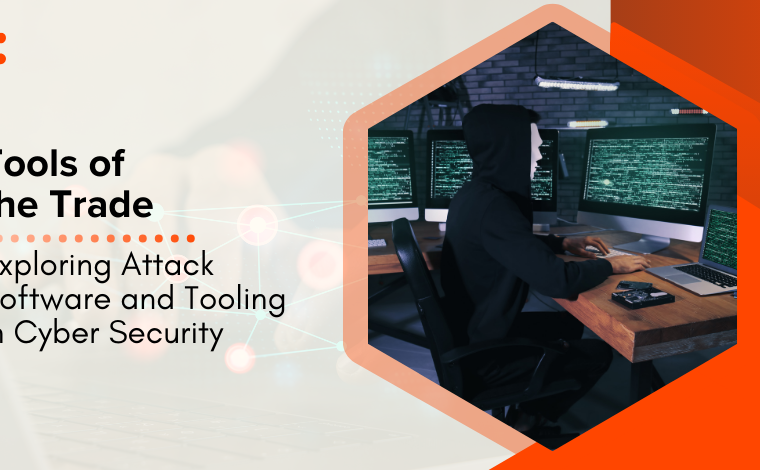Exploring Cyber Security in the Construction Industry

Stay Informed With Our Weekly Newsletter
Receive crucial updates on the ever-evolving landscape of technology and innovation.
The construction industry has become increasingly reliant on technology, from building information modelling (BIM) systems to automated machinery. While these technological advancements have streamlined the construction process, they have also led to an increase in cyber security risks.
We explore the growing importance of cyber security in the construction industry, the common cyber threats faced by construction companies, best practices for cyber security, and the role of government and industry regulations in addressing these risks.
The growing importance of cyber security in the construction industry

The construction industry has always been known for its physical labour and on-site work. However, with the advent of technological advancements, the industry has undergone a transformation. There has never been a more important moment for the implementation of cyber security in the construction industry.
From drones to 3D printing, from Building Information Modeling (BIM) to Internet of Things (IoT) devices, technology has brought in a new era of efficiency and productivity in the construction sector. To enhance the security of your IoT devices against cyber threats, you can refer to our article on the topic.
However, with these advancements comes a new set of challenges, and one of the most significant challenges is cyber security. As the construction industry becomes increasingly digitised, the amount of data being collected and shared within organisations has grown exponentially.
This wealth of data can be very valuable to cyber criminals, as sensitive information such as proprietary designs, financial data, and employee records are stored electronically.
Construction firms are now more connected to external networks and suppliers than ever before. This interconnectedness can provide entry points for cyber criminals to infiltrate a company’s network.
As the supply chain expands, the potential attack surface area grows, and the risks associated with third-party vendors become more significant. Therefore, construction firms need to have robust cyber security measures in place to protect themselves from cyber-attacks.
The consequences of a cyber attack can be severe for construction firms. Not only can it result in significant financial losses, but it can also lead to reputational damage that can be immeasurable. A data breach can lead to losing customer trust and brand loyalty, which can have long-lasting effects on a company’s bottom line.
According to a recent report, The global average data breach cost increased by 2.6% from $4.24 million (USD) in 2021 to $4.35 million (USD) in 2022. This cost includes direct expenses such as investigation, remediation, and legal fees, as well as indirect costs such as lost business opportunities and damage to the brand’s reputation.
The cost of a cyber attack can be devastating for construction firms, especially for small and medium-sized businesses that may not have the resources to recover from such an event. These are just some of the reasons why cyber security in the construction industry is on the rise.
Common threats examples and the need for cyber security in the construction industry
Phishing and social engineering attacks
Phishing is a technique used by cyber criminals to trick individuals into giving away sensitive information. Social engineering attacks, such as CEO fraud and pretexting, rely on psychological manipulation to convince people to take actions that may compromise security.
These attacks are commonly used to gain access to construction companies’ sensitive data, such as login credentials or financial data.
Ransomware and malware
Ransomware and malware attacks are designed to cause disruptions and sometimes even to paralyse entire systems, making construction companies unable to continue their work.
Attackers use ransomware and malware to gain access to systems or to damage or destroy data. Such attacks can also involve the encryption and holding of data hostage, with a ransom demand for its return.
Insider threats and human error
The biggest security threat to a construction company does not always come from outside the organisation. Employees can be a vulnerability if they are not trained or aware of security risks. Innocent mistakes like leaving a password on a post-it note can have devastating consequences. Besides, malicious insiders may intentionally leak or sell sensitive data.
Supply chain vulnerabilities
With the construction industry’s supplier network becoming increasingly global, the risks of cyber attacks from the supply chain also increase. Attackers may use a supplier’s system as a weak link to access and steal sensitive data or even to inject malware or ransomware into the target company’s network.
Therefore, companies must work closely with suppliers to maintain cybersecurity hygiene and check for vulnerabilities regularly.
Best practices for cyber security in the construction industry
Employee training and awareness
Building a strong security culture begins with employee awareness and training. Construction companies should implement mandatory security training programs, requiring that all employees complete cyber security training courses.
Furthermore, employees should be educated on current cyber threats and how to identify phishing scams. Regular cyber security awareness campaigns should also be organised to keep employees updated with the latest threats.
Implementing strong access controls
Implementing proper access controls is essential to reduce risks from insider threats. All access to company systems and data should be protected with strong passwords or multifactor authentication. Moreover, employees must only have access to data relevant to their work and position.
Network segmentation can be enforced to restrict network access to certain departments or individuals. To gain knowledge on safeguarding your business’s networks and applications, you can refer to our article on the subject.
Regular security assessments and audits
Regular security assessments can identify weaknesses in the company’s security infrastructure. Regular vulnerability scans and penetration testing can identify where security weaknesses exist that could be exploited by cyber attackers. It is also wise to have periodic independent security audits to ensure that the company’s security procedures are compliant and up to date with current industry standards.
Incident response planning
An incident response plan can help reduce the speed and severity of a cyber attack’s impact. Construction firms should prepare a documented incident response plan that outlines the steps to follow in the event of a security breach or incident.
This plan should contain procedures for calling the cyber security experts or law enforcement agencies and communicating with affected parties.
The role of government and industry regulations

Compliance with data protection laws
Many countries have introduced data protection laws, such as the General Data Protection Regulation (GDPR) in the European Union (EU) or the California Consumer Privacy Act (CCPA) in California, to regulate how companies collect, store, and process personal data.
To prevent data breaches and non-compliance with data protection laws, construction companies must ensure that they implement proper data protection measures.
Industry-specific standards for cyber security in the construction industry
In response to the growing risks the construction industry faces, some organisations have developed standards and best practices specific to the sector.
The Construction Industry Cyber Security (CICS) guidelines issued by CIOB and Building Research Establishment is one such example. Additionally, governmental agencies have also published guidelines for digital security in the sector, such as NIST’s Cybersecurity Framework.
The impact of government initiatives
In recent years, government initiatives targeting cybersecurity have grown around the world. Construction companies must pay attention to these initiatives and comply with all relevant regulations. Some governments, such as the UK and USA, have also launched special programs to raise awareness and enhance cyber security in the construction sector.
Conclusion
The growth of technology in the need for cyber security in the construction industry has brought new challenges and cyber risks. Protecting the vast amounts of sensitive data construction companies generate requires a proactive approach to cybersecurity.
By adopting best practices for cyber security in the construction industry, such as improving employee awareness, implementing strong access controls, conducting regular security assessments, and planning, companies can mitigate cyber threats, reduce financial losses, and safeguard their reputation.
If you’re interested in pursuing a career in cyber security, you may want to explore Institute of Data’s 3-month full-time or 6-month part-time Bootcamps.
To find out more about our programs led by industry professionals, you can download a Cyber Security Course Outline.





